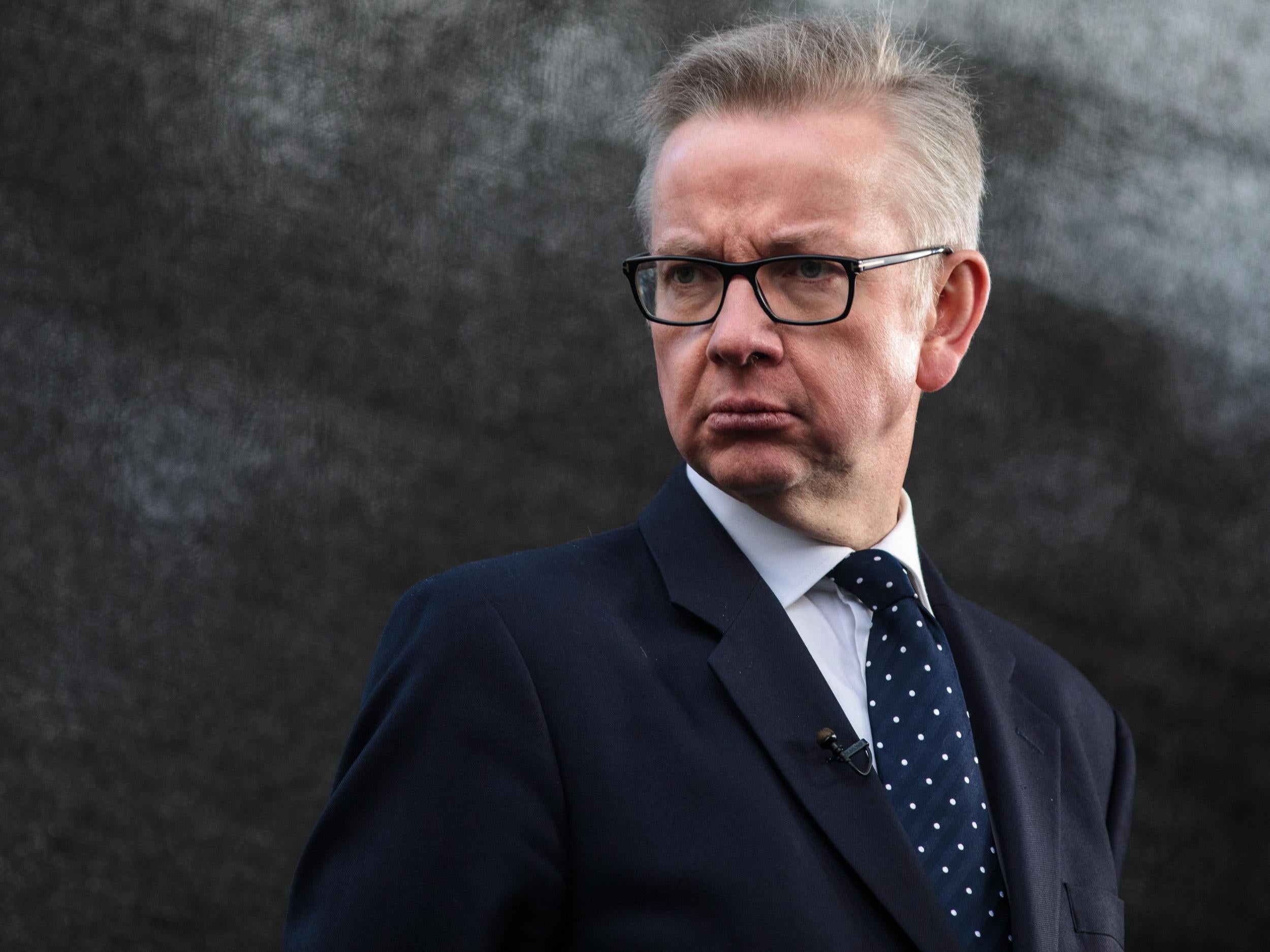There is no point in Michael Gove’s new environment bill if it’s just EU-lite
Analysis: After the government’s long-awaited environment bill was rushed out, Josh Gabbatiss considers the potential shortcomings with this vision for a ‘green Brexit’


On Wednesday, Michael Gove’s department released its new environment bill, a key part of the plastic-hating minister’s vision for a “green Brexit”.
Released towards the end of the day and with no fanfare, it was made public shortly after a riotous few hours of parliamentary theatrics following Jeremy Corbyn’s alleged “stupid woman” comment.
The timing seemed odd, especially given the bill’s much vaunted status as the first of its kind in two decades, and the chance for Gove to burnish his green credentials. Perhaps it was just the result of a busy department rattling everything out before the Christmas break.
However, given the lukewarm reception the bill got from Britain’s environmentalists, there may have been another reason for releasing it at the end of a hectic news day.
While the bill’s content was broadly welcomed, the consensus seems to be that it falls far short of the “world-leading” green vision painted by the ever-enthusiastic Gove. In its current incarnation, his strategy does not match the government’s pledge to “leave nature in a better state than we found it”.
Crucially, environmental groups are concerned that without further work, we will be no better off than we are under existing European regulations.
As it stands, British wildlife, air and water quality are all governed by EU rules, and it has fallen to Defra to come up with post-Brexit replacements. The EU is far from perfect on the environment – as yesterday’s widely-derided fishing quotas show – but it does have strong institutions in place to hold nations to account when they err.
Over the past year the EU has taken action against the UK both for its failure to protect vulnerable porpoises, and to deal with its dangerous levels of air pollution. If Britain is not kitted out with an alternative regulatory watchdog that can hold power to account, green groups are worried an environmental free-for-all will ensue, with no one facing real consequences.
This is why there is disappointment that the “independent” Office for Environmental Protection proposed in the new bill would have its leader appointed and budget set by the environment secretary.
Also contained within the bill are ambitious ideas like making polluters pay for their waste, but without any firm targets for air and water quality beyond saying the government would “explore options”. The lack of clear legal requirements has done little to allay post-Brexit environmental concerns.
But all is certainly not lost. Amy Mount from the Greener UK coalition – set up to monitor the nation’s environmental future outside the EU – said with sufficient improvements this bill could still prove a “turning point” for reversing environmental decline. Gove said he will release an expanded version of the bill in September 2019, so we will find out next year whether campaigners’ concerns have been taken on board.
In the meantime, the clock is ticking to exit day on 29 March, and a no-deal outcome is looking more likely by the day.
Defra is one of the departments that has struggled most to prepare for Brexit, amid fears of rubbish piling up on Britain’s shores and a block on livestock being transported to Europe. With all this going on, will its beleaguered staff have time to agree on tough new legislation in time to prepare for a no-deal departure?
If environmental issues are going to get any attention at all in a post-Brexit UK, avoiding a no-deal scenario must be an absolute priority. During a grilling by MPs on Wednesday, Gove was asked whether such an outcome would relegate all his big words about tackling plastic pollution to idle conversation at “dinner parties”.
The environment secretary replied that if such a scenario arrives, he “probably won’t be attending many dinner parties”.
Join our commenting forum
Join thought-provoking conversations, follow other Independent readers and see their replies
Comments